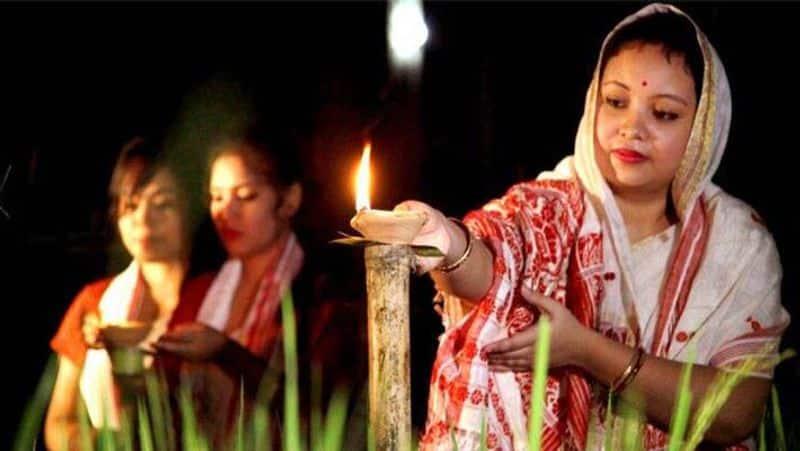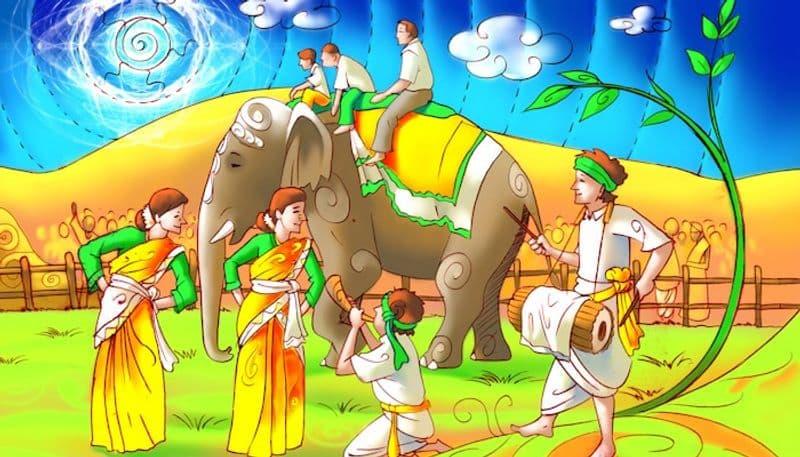
When Is Bohag Bihu 2024? Know The Correct Date, Customs, Significance Of The Assamese New Year
Bohag Bihu 2024 Date
This year, Bohag Bihu will occur from April 14th to April 20th, 2024.
Bohag Bihu 2024: Origins and Importance
Bohag Bihu dates back to ancient times and reflects Assam's agricultural tradition. This celebration, traditionally linked to farming cycles, falls on the first day of the Assamese New Year and the entrance of spring.
Also Read:
Baisakhi 2024: 6 outfits to steal from celebrities' closets
However, Bohag Bihu has significance beyond agriculture, acting as a time for revival, communal connection, and cultural revitalisation. Communities unite to maintain traditions, establish social links, and give thanks for life's blessings.
Bohag Bihu 2024: Customs and Festivals
Traditional Assamese folk music and dances, such as the lively Bihu and the cheerful Husori, take centre stage during the festivities. The rhythmic beats of the dhol and the melodic sounds of the pepa permeate the air, evoking the richness of Assamese culture.
People dress up in vibrant traditional costumes and ornaments known as Asomiya Gohona. Women often wear a Mekhala as a bottom garment and a Chadar to cover their upper bodies. They dress up their outfits with Assamese jewellery and flower crowns in their hair. Women may wear Lokaparo, Keru, Thuriya, or Jangphai earrings, while popular necklaces include Golpata, Joon biri, Bena, Gejera, Dhol biri, and Doog-doogi/Dugdugi. The outfit also includes bracelets such as Muthi Kharu and Gamkharu.
Also Read:
Vishu 2024 Facts: 'Konnapoo' is Thailand's national flower
Men frequently wear dhoti-kurtas, usually in red and white.
During Rongali Bihu or Bohag Bihu, young people engage in exuberant singing and dancing known as Husori, accompanied by traditional instruments such as the dhol, pepa, and taal. This habit is common in traditional Assamese villages, in which male performers organise groups and visit families to perform. They sing and perform instruments in exchange for a xorai (traditional offering tray) and gamosa (traditional cloth) as a token of respect from the houses.
Bohag Bihu 2024: The Seven-Day Festival
Bohag Bihu takes place over seven days, known as 'Xaat Bihu,' each with its own traditions and meaning.
Goru Bihu: This day recognises and praises cattle for their contributions to agriculture. Villagers collect their cattle for a cleaning ceremony with turmeric and black gramme paste, after which they are fed vegetables as a sign of thanks.
Manuh Bihu: Traditional customs include bathing in turmeric, cleaning dwellings, and visiting relatives to request blessings and exchange presents.
Gosain Bihu: Devoted to religious observances and seeking heavenly blessings for the new year, worshippers gather to temples to pray.
Mela Bihu: Community spirit thrives with lively gatherings and bright festivals that feature cultural exhibitions and traditional sports.
Kutum Bihu is a day spent visiting friends and loved ones, enjoying sweets and traditional dishes.
Senehi Bihu celebrates friendships and strengthens social relationships via visits, gifts, and passionate chats.
Chera Bihu: Symbolising regeneration, old items are dumped, signalling a new beginning and welcoming future prospects.
Legal Disclaimer:
MENAFN provides the
information “as is” without warranty of any kind. We do not accept
any responsibility or liability for the accuracy, content, images,
videos, licenses, completeness, legality, or reliability of the information
contained in this article. If you have any complaints or copyright
issues related to this article, kindly contact the provider above.



















Comments
No comment